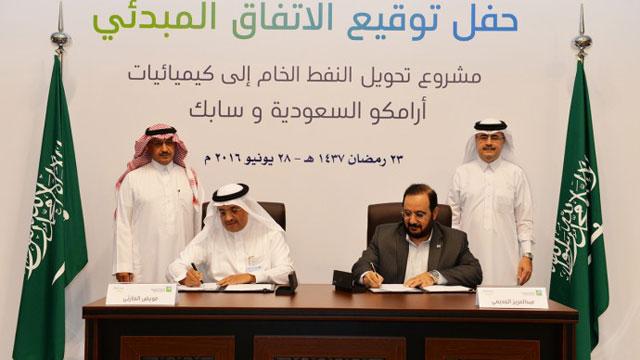You are here
Saudi Aramco touts 'commitment to China' with petrochemical deals
By AFP - Mar 27,2023 - Last updated at Mar 27,2023
RIYADH — Saudi Aramco on Monday unveiled plans to acquire a 10 per cent stake in a Chinese petrochemicals firm, a deal the Gulf energy giant said was evidence of its "long-term commitment to China".
The agreement with Rongsheng Petrochemical comes as Saudi Arabia — the world's biggest crude exporter — increases political ties with top importer China including a recent Beijing-brokered reconciliation with Iran.
Aramco said in a statement the deal stipulates the supply of 480,000 barrels per day of Arabian crude "under a long-term sales agreement" with Rongsheng.
"This announcement demonstrates Aramco's long-term commitment to China and belief in the fundamentals of the Chinese petrochemicals sector," said Aramco Vice President Mohammed Al Qahtani.
"It is an important acquisition for Aramco in a key market, supporting our growth ambitions and advancing our liquids to chemicals strategy. It also promises to secure a reliable supply of essential crude to one of China's most important refiners."
News of the Rongsheng deal came one day after Aramco announced it would partner with two other Chinese companies to build a refinery and petrochemical plant in the northeastern Chinese city of Panjin.
That facility "is expected to be fully operational by 2026", Aramco said in a statement.
Speaking on Sunday at the China Development Forum in Beijing, Aramco CEO Amin Nasser said the firm, a leading source of income for the kingdom, was "doubling down on China's energy supply".
"We see a major win-win opportunity to build a world-leading, integrated downstream sector in China, with special emphasis on the high conversion of liquids directly into chemicals as part of our broader liquid-to-chemicals business expansion plans," Nasser said.
Aramco, which is mostly state-owned and said it earned record profits totalling $161.1 billion last year, has pledged to achieve "operational net-zero" carbon emissions by 2050.
That applies to emissions that are produced directly by Aramco's industrial sites, but not the CO2 produced when clients burn Saudi oil in their cars, power plants and furnaces.
Nasser and other top Saudi officials have simultaneously called for further investment in fossil fuels — a position he reiterated on Sunday, saying Chinese leader Xi Jinping was in agreement.
"We agree with [Xi's] view that conventional energy sources and alternatives will have to work in parallel for decades to come," Nasser said.
"China cannot achieve its climate change mitigation goals at the expense of energy security."
Related Articles
RIYADH — Saudi Aramco said on Friday it had completed its purchase of a 10 per cent stake in a Chinese petrochemicals firm, part of an expan
RIYADH — Two Saudi Arabian industrial giants said on Tuesday they will jointly study a project to make chemicals from oil, as the world's la
DHAHRAN, Saudi Arabia — Saudi Arabia's state-owned oil giant is finalising options for its partial privatisation and will present them to it


















